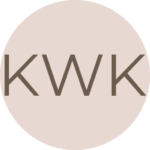Money is a crucial part of our lives. Having a good relationship with money is essential for your financial success. If you don’t have a good relationship with money, this can lead to overspending, living paycheck-to-paycheck, and drowning in debt.
A healthy relationship with your finances isn’t always easy, but building healthy financial habits can help you get a handle on your spending, increase your savings rate, and make sure that you’re on track to achieving your financial goals, whether that’s becoming debt free, buying a home, retiring a millionaire, or retiring early.
Also read: 8 Tips for First Time Home Buyers [Guided Steps]
9 Healthy Financial Habits You Need to Better Your Financial Future.
1. Write Down Your Money Goals and Make a Plan to Achieve Them

Writing down and visualizing your money goals is so important, because it will be a key factor in helping you stay motivated and consistent. When setting a money goal, make sure they are specific and measurable. Be realistic about the time frame you are going to need in order for your goal to happen. Set short-term, mid-term, and long-term goals.
For example, instead saying “my money goal this year is to save more money;” your new money goal will now be “I want to save $7,500 within the next 12 months by transferring $625 into my savings account every month.”
2. Track Your Spending

An important step to building healthy financial habits is knowing your spending patterns. Tracking your spending will help you become aware of where your money is actually going towards. In the beginning, this will be something that takes getting used. At the very least, I recommend tracking 1-3 months so you can have an idea of where your money goes.
You can track your spending using a spreadsheet, an app, or using a pen and paper. You just have to decide what level of detail works best for you. Essentially the information you will need is the date, the description of your expense, and the amount.
You can choose to record your daily expenses throughout the day or take the last 5 minutes before going to bed to record your day’s spending. But if you feel like you’ll forget, stick to immediately recording your spending after doing a transaction.
At the end of the month analyze your spending. This will help you gain insight into where your money is going and where to cut back when necessary. This money activity can be mind blowing as you will start becoming aware of your spending habits.
3. Build a 3-6 Fully Funded Emergency Fund

An emergency fund is a savings account will come in handy when the unexpected happens. It’s a rainy day fund that you can use to cover unexpected expenses or financial emergencies. If you don’t have any savings set aside for these types of situations, it can be extremely difficult and stressful trying to come up with enough money on a short notice.
To calculate how much you should have in your 3-6 emergency fund you need to:
i. Figure out how much you need to cover for your essential expenses (e.g. rent, utilities, groceries, transportation, etc)
ii. Choose how many months of expenses you feel comfortable having (3-6 months is recommended)
iii. Multiply your monthly essential expenses by the number of months to figure out how much you should have saved in your emergency fund.
4. Create a Realistic Monthly Budget

A budget is a money plan that allows you to be aware of how much money you are bringing in and see exactly where your money is going, so that you can make adjustments if necessary. Having a budget will help you make smart financial decisions. By setting aside some time each month to make a budget and stick to it, you will be on your way towards improving your finances for the long run.
There are several different methods of budgeting, the key is to pick one that best suits you.
Grab a FREE Zero-Based Monthly Budget Spreadsheet.
5. Prioritize Paying Yourself First

One of the best ways to build your savings is to pay yourself first. This means taking a portion of your income, and putting it into a savings account before you spend any of it–even if it’s just $5 or $10. You can do this by setting up automatic monthly transactions, where you send a portion from your paycheck straight to your high-yield savings account.
6. Find Ways to Reduce Your Expenses and Ways to Increase Your Income

Cut back where you can; whether that means less subscriptions, living with a roommate, meal prepping instead of always ordering out, etc.
Although cutting your expenses is a great way to be more intentional with your money, there is always a limit on how much you can cut back. Therefore, you should also find ways to increase your income; whether that means asking for a raise, a promotion, changing jobs, or through side-hustles.
7. Pay Down Debt

Pay down debt, especially if you have high interest debt, as it can quickly eat up your money. For example, credit cards usually have a high interest rate, therefore, even if you pay the minimum, you will end up paying hefty interest rates until the balance is paid off. So if you have debt, list out all your debt, along with the interest rate, minimum payments required, and make a plan to start tackling them as soon as possible.
Always remember in order to avoid credit card debt, only make purchases that you know you can pay off in full and on time.
8. Invest Your Money

Investing in the stock market is an amazing way to build wealth. For example, say you invest $10,800 this year, and every year for the next 30 years you invest another $10,800, and this fund grows at an average annual rate of 7% per year, after 30 years you’ll have a little over $1 million dollars! This is the power of investing! The key to success is to invest for the long-term while starting as early as you can.
You can invest in stocks, bonds, exchange-traded funds (ETFs), mutual funds, index funds, and real estate. The simplest way to invest is in low-cost, diversified index funds.
There are several ways you can start investing. Some ways are through your employer’s sponsored retirement accounts (e.g. 401k or 403b), an individual retirement account, or using a robo-advisor. Remember the key is to start as soon as possible so make this a priority.
9. Constantly Work on Improving Your Financial Literacy
Lastly, another healthy financial habit you need to better your financial future is to improve your financial literacy. Financial literacy is a skill that can be improved with practice and education. The more you understand how money works and how to manage your finances, the better financial decisions you will make.
Here are some things you can do:
- Read books and blogs about personal finance
- Take money courses
- Watch Youtube and use google to do your own research
- Book a money coaching session
Ultimately, building healthy financial habits takes time and effort, but the benefits are worth it. By following these tips, you can start to take control of your finances now and improve your financial future.
Remember, it’s never too late to start building new habits. So, why not start today and see where it takes you?

